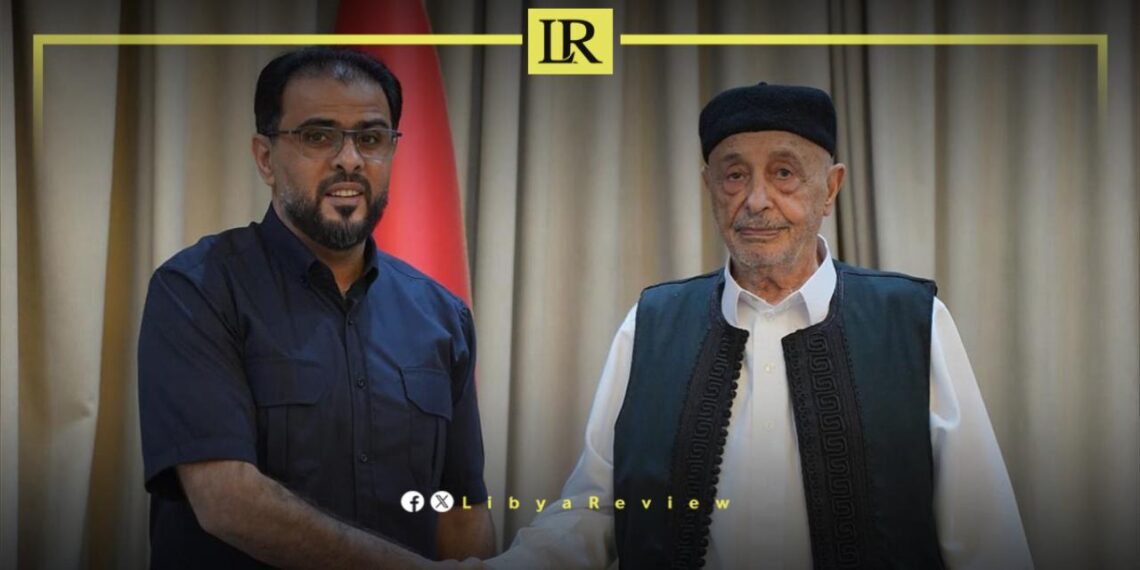On Tuesday, Libyan Prime Minister of the Parliament-designate government, Osama Hammad, met with House Speaker Ageela Saleh to address the status of struggling domestic companies and withdrawing foreign businesses. This significant meeting, held in Qubbah, aimed to discuss and devise strategies for Libya’s economic recovery and development.
During their talks, Hammad provided Saleh with a comprehensive update on the government’s current initiatives, including several government-supported reconstruction projects across multiple cities and regions. He particularly emphasized the launch of new development projects in Murzuq and Sebha during his recent visit to southern Libya.
Accompanied by Belgasem Khalifa Haftar, Director General of the Development and Reconstruction Fund, and the Reconciliation Committee, Hammad inaugurated new projects and approved essential maintenance and development work in these regions.
The Libyan PM also outlined the government’s support for essential goods, including imported sacrificial animals, and providing vaccines and veterinary medicines to livestock breeders nationwide. This initiative is designed to enhance and preserve the livestock population, a vital component of Libya’s agricultural sector.
Additionally, he detailed effective solutions to the persistent power grid outages, which include urgent orders to supply spare parts, replace outdated stations and transformers, and form an emergency committee to address the crisis across all regions.
Most of the discussion focused on the status of struggling and withdrawing companies. The government has pledged to support these companies by distributing six months’ worth of salaries to their employees and working towards a long-term resolution of their challenges.
Saleh commended Hammad’s proactive approach to monitoring projects and ensuring the quality of services provided to citizens across all cities and regions.
The government’s focus on reconstruction and development, particularly in neglected southern cities like Sebha and Murzuq, is a crucial step toward economic recovery. These regions have faced significant infrastructural challenges, and the new projects aim to address these issues comprehensively.


